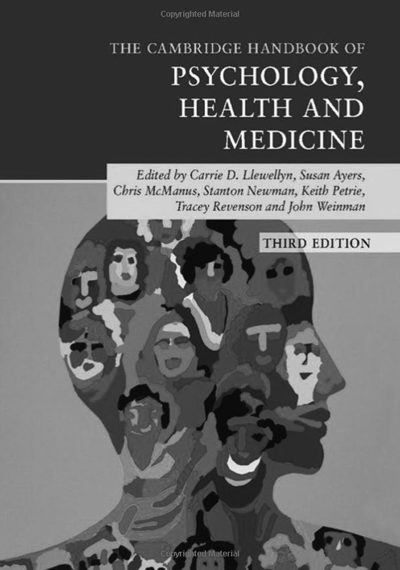
At medical school we learn about the biopsychosocial model of illness, which emphasises the intrinsic interaction between these components in any disease. Despite this, health services still frequently deliver care in discrete silos that differentiate between physical and mental illness. Training and education often follow this false dichotomy, not adequately considering the effect of psychological processes on physical health, or biological process on mental illness. Policy initiatives around the globe are calling for more integrated thinking in approaches to improve health and tackle illness.
The Cambridge Handbook of Psychology, Health and Medicine promises to help bridge this divide. This third edition considers the role of psychological processes in health and medicine. Less of a handbook and more of an encyclopaedia, this weighty tome provides a comprehensive overview of the topic. It is conveniently and logically divided into two parts, the first focusing on the psychology of health and illness, and the second on particular medical topics.
Numerous updates since the previous edition include welcome additional chapters on assisted reproductive technology, e-health interventions, patient-reported outcome measures and the effects of war and conflict. This ensures that the book covers many relevant contemporary issues that readers may encounter in their modern practice.
The earlier chapters provide a useful overview of the underlying processes informing our understanding of illness development. These range widely over diverse areas, such as the relationship of environment, occupation, immigration, gender, sexual orientation and socioeconomic status with health. The focus moves on to consider how the psychological aspects of disease can be assessed and what psychological interventions are available.
An interesting section for any frontline healthcare professional considers healthcare practice, reflecting on the impact of our often-challenging working environments on practitioner behaviour. Hot topics such as burnout, information quality and communicating risk are covered in dedicated, informative chapters.
The bulk of the second part deals with particular medical conditions and symptoms. This offers an invaluable reference point for any psychiatrist working with patients with the corresponding problem. As well as providing a ready primer on the condition of interest, it also helps to signpost what a psychiatrist could add to the holistic care of such patients.
This book has a very broad scope, which would make it appealing to a variety of audiences. The sections devoted to psychological processes are of interest to candidates preparing for the MRCPsych examinations, while the medical topics chapters would support anyone training to become a liaison psychiatrist. Moreover, the book in its entirety would provide a useful compendium for any student or practitioner of healthcare, regardless of their particular professional background.



eLetters
No eLetters have been published for this article.